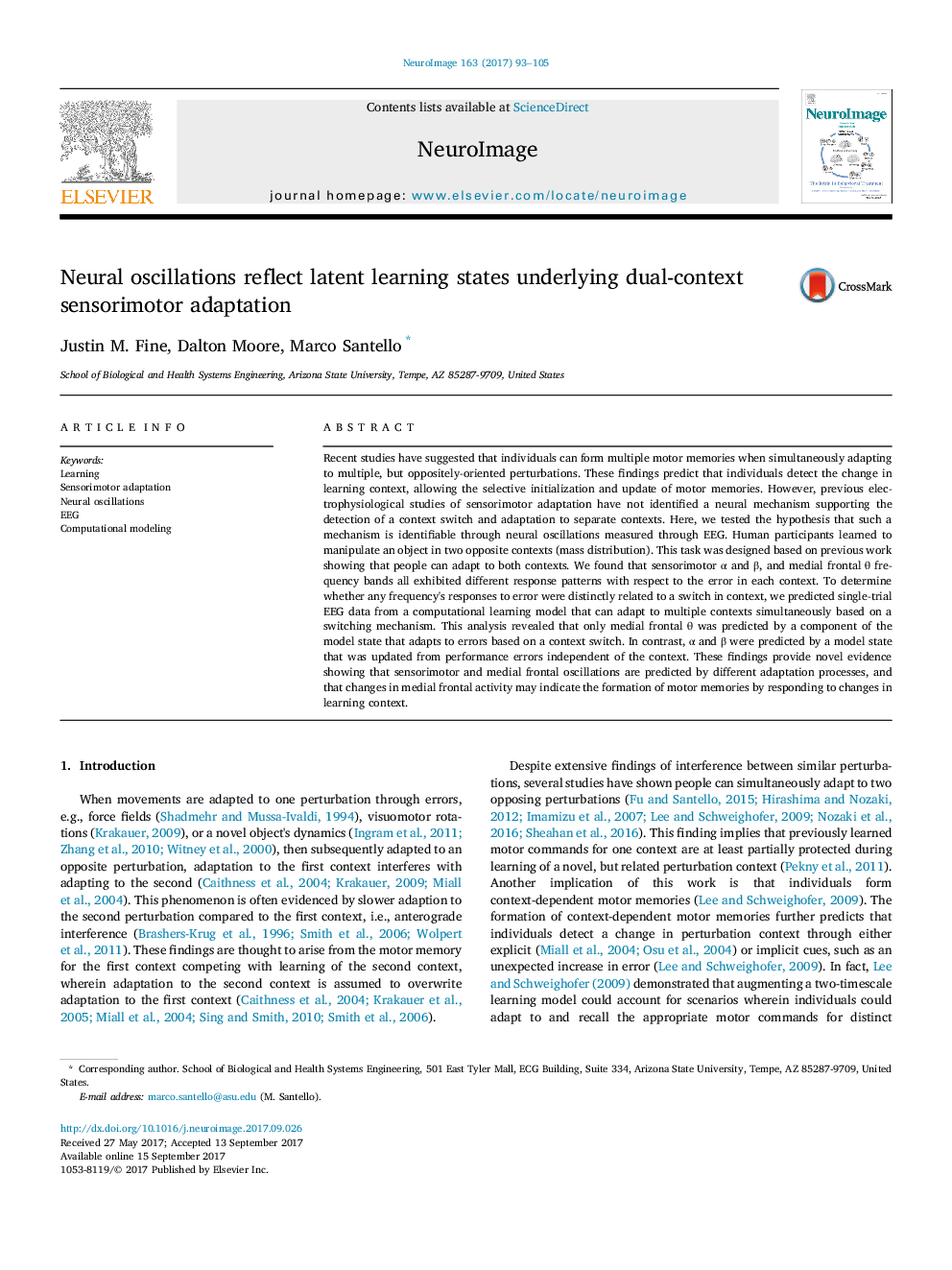| کد مقاله | کد نشریه | سال انتشار | مقاله انگلیسی | نسخه تمام متن |
|---|---|---|---|---|
| 5630789 | 1580847 | 2017 | 13 صفحه PDF | دانلود رایگان |
- Neural oscillations are proposed as mechanisms for sensorimotor learning.
- Different frequencies relate to distinct model-based learning processes and timescales.
- Medial frontal θ represents changes in learning environment.
Recent studies have suggested that individuals can form multiple motor memories when simultaneously adapting to multiple, but oppositely-oriented perturbations. These findings predict that individuals detect the change in learning context, allowing the selective initialization and update of motor memories. However, previous electrophysiological studies of sensorimotor adaptation have not identified a neural mechanism supporting the detection of a context switch and adaptation to separate contexts. Here, we tested the hypothesis that such a mechanism is identifiable through neural oscillations measured through EEG. Human participants learned to manipulate an object in two opposite contexts (mass distribution). This task was designed based on previous work showing that people can adapt to both contexts. We found that sensorimotor α and β, and medial frontal θ frequency bands all exhibited different response patterns with respect to the error in each context. To determine whether any frequency's responses to error were distinctly related to a switch in context, we predicted single-trial EEG data from a computational learning model that can adapt to multiple contexts simultaneously based on a switching mechanism. This analysis revealed that only medial frontal θ was predicted by a component of the model state that adapts to errors based on a context switch. In contrast, α and β were predicted by a model state that was updated from performance errors independent of the context. These findings provide novel evidence showing that sensorimotor and medial frontal oscillations are predicted by different adaptation processes, and that changes in medial frontal activity may indicate the formation of motor memories by responding to changes in learning context.
Journal: NeuroImage - Volume 163, December 2017, Pages 93-105
